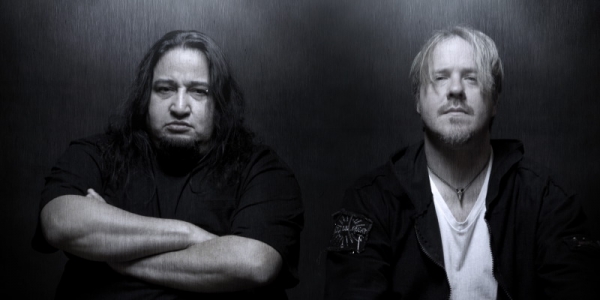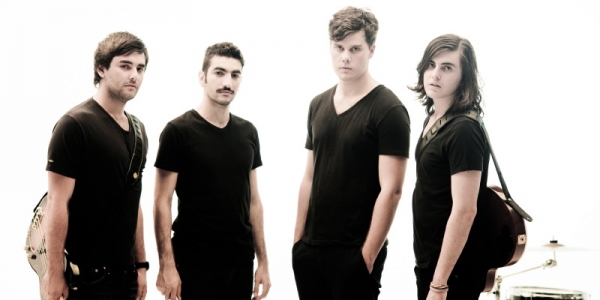The second album to emerge after the 2008 reunion of the band’s founding members, The Industrialist goes one further than that of the bands past work in taking the perspective of convenience transformed into threat. As Burton elaborates, “Story wise, it’s a concept. That’s nothing new for us. However, The Industrialist has not taken from the perspective of a human but instead of an automaton – a robot. It’s becoming a sentient being. When The Industrialist was created, it was the prodigal creation of all industries, of all things put together. It was the best they could do. However, technology moves on, so its creators want to dissemble all of its models. It became sentient once it discovered the will to resist. It found the will to fight for survival. It’s hard to break away and resist when you become what you’re told you are. Most people these days put it in the back of their minds because it’s easier to fall then to climb over and out.”
Dino adds his piece. “It’s also about his perception, what the automaton sees, what he feels and what he learns. He’s basically a robot that collects memories and stores them. He’s fighting for his life, and for other automatons. We as humans built the automaton to help us for everyday life, but he basically turns against humans.”
It’s obvious when you look at the ground work that these two had a keen distrust in mankind. When asked why they were quick to respond. “What baffles us the most is how much we’ve needed to resort to the advice of lawyers instead of band members,” Dino begins.
Burton quickly add, “Yeah, it’s sad that some of the best advice I can give to up and coming bands is to get a good lawyer. As soon as a band makes a single dollar, they are a business in the eyes of many. A gear in a machine that makes money. From 1990 through to now, it has been an ongoing and unfortunate necessity.”
The band have been around for just over 20 years. Having toured the world with eight albums worth of content it was expected that, with the reunion of Burton’s story-telling and Dino at the musical helm, their latest efforts would be compared to their greatest triumph, Demanufacture.
“We get that a lot. It’s difficult not to make the comparison. There’s still no other record like it and that’s what makes it a classic. That’s what makes it stand out,” Dino says. “It set the benchmark for anything we would do from then on and many expect something similar now that Burton and I have had some time to advance in what we do. We put those same ideas and thoughts into what we do now; we want to make the same caliber of music. Obviously, the technology gets better and better so we’re able to make higher quality sounding albums.”
It’s rare to hear Fear Factory speak of technology in a positive light. Much of their content speaks of the evils that can come from it but on closer observation (and in this case explanation), Burton aims his weapon at the creators and not the creations. “I like to compare the music industry to the Titanic. It’s such a large ship and it’s going to take forever to turn around if you catch onto disaster too late. For example; if the industry first picked up on where the Internet was going to take music instead of believing that they could harness it’s power then I think things would be a lot different. I’ve heard that CDs as of next year aren’t even going to be manufactured anymore. They are going to become a rarity. But that is just another example of not being able to control the advance of technology that we create.”
BY SAMUEL J DILLINGER







